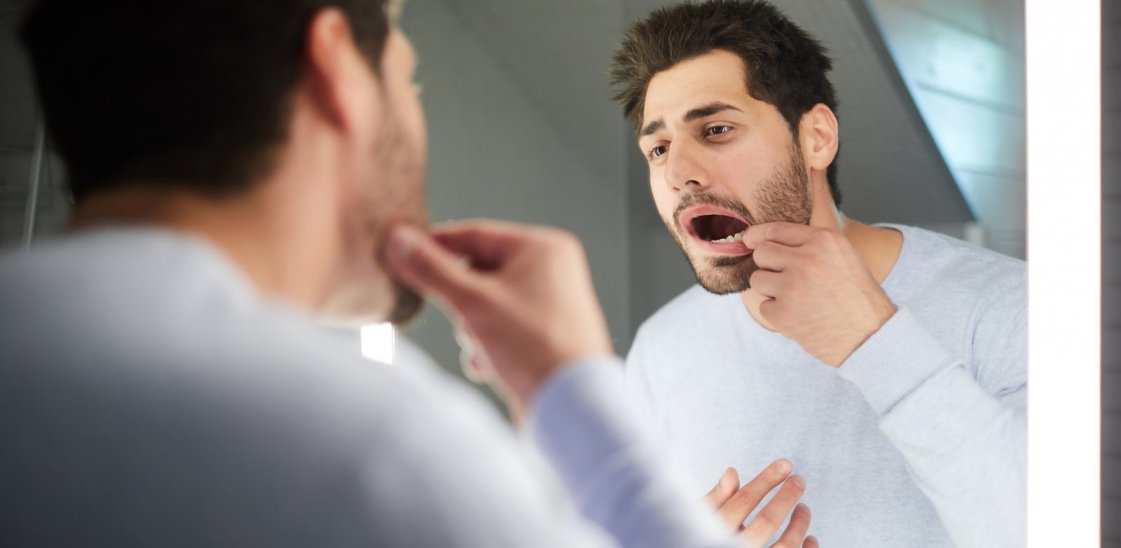
Can you treat a cavity at home?
A form of tooth decay, cavities are holes in teeth that form when teeth aren’t brushed correctly and food isn’t properly cleaned away from the surface of teeth. The sugar and acid in certain foods will then wear away at the enamel on teeth before penetrating the surface. Cavities can lead to severe damage to teeth, and if left untreated, can cause problems to more teeth in the mouth. As such, it’s important that if you notice a cavity starting to form that you seek immediate attention from your dentist.
Whether it’s down to a natural build up of appointments or a lack of open dental surgeries in your area, it can sometimes be difficult to book in with your dentist and get your teeth looked at. Due to this, you may be wondering if you necessarily need a dentist or if you could fix a cavity yourself. In this blog, we look at whether people can treat cavities from home and the potential products they could use to do this.[1]
Can you fix a cavity without going to the dentist?
When a cavity forms in the mouth, it can cause severe pain, and if it isn’t quickly treated, it can cause further damage to the tooth as well as other neighbouring teeth. Experiencing cavities and tooth decay may cause you to feel concerned and panicked as it could need immediate attention. However, as incorrect dental work could cause more problems, it’s important that you don’t inadvertently worsen the issue.
In some cases, a cavity could be an emergency, but you may be unable to book an appointment straight away. While you won’t be able to carry out permanent dental work on your own mouth and it would be strongly advised to not attempt to, you could use a suitable product to temporarily fix the issue as you wait for an appointment.[1]
Below, we’ve outlined how you could fill a tooth cavity from home, as well as offer tips on preventing more cavities from forming in the future.
How to fill a tooth cavity at home
If you begin to identify the early signs of tooth decay, it would be advisable to make an appointment with your dentist so it can be assessed and properly treated by a professional.[1] If, however, you’re unable to see a dentist or there are significant delays, you could consider effective ways to temporarily fill cavities and prevent more from forming.
Designed for fillings, caps and crowns, an effective treatment for open cavities is our DenTek tooth repair kits. The products contained in these kits are typically the same strength and quality used by dentists, and all you need to do to use it is apply the solution to the affected area using the applicator. It will then harden to form a protective shell over the gap, keeping out food. However, it’s important to bear in mind that this is only a temporary fix and you should book an appointment with your dentist for a permanent solution.
Once you’ve filled in your cavity, it would also be advisable to ensure that the rest of your mouth is safe from more cavities forming. To do this, you should brush your teeth carefully with regular fluoride toothpaste, cut down on foods containing refined sugar, drink plenty of water, chew xylitol chewing gum and rinse your mouth with salt water to reduce the likelihood of bacteria and infection.[2]
How to clean a cavity at home
Whether you choose to try a temporary solution like the one above or decide to wait until you can see your dentist, it’s vital to keep your cavity as clean as possible to avoid it getting worse. A cavity is a spot of vulnerability, like a hole in a shield. If you don’t protect the area, you risk more serious damage. Here are some ways you can keep your cavity clean.
- Brush your teeth with care
Brushing your teeth is not only integral to preventing future cavities, but it can also help to stop existing ones getting worse. Your mouth will likely be sensitive, so it’s best not to be too vigorous when brushing the affected area. However, making sure to shift any food or plaque present in the affected area will help to prevent more pain or damage.[2]
- Stay hydrated
You may not realise it, but a dry mouth can be a big contributor to cavity formation. Residue from your food remains in your mouth after eating, and if you’re not producing enough saliva, it may stay there for hours, allowing bacteria to reproduce and attack your teeth. Rinsing your mouth with water after meals and drinks can help to prevent cavities, as can staying hydrated to keep your saliva production up. It’ll also help to keep those bacteria away from existing cavities.[3]
- Avoid sugar
It’s popular advice in the dentist’s office, and there’s a very good reason for it. Sugar increases the acid levels in your mouth, which leads to enamel damage and cavities. It’s a good idea to cut down on your sugar anyway, but especially if you already have a cavity – high acid levels can speed up the decay of your tooth.
If you can’t give up sugar altogether, try to consume it as infrequently as possible. The acid-producing effects of sugar last for around two hours after eating. Eating more sugar within those two hours denies your teeth a chance for relief from the acid. Giving your teeth a break from bathing in high levels of acid allows the enamel to remineralise and reduces the likelihood of decay and cavities.[1]
Resources:
[1] https://www.nhs.uk/conditions/tooth-decay/
[2] https://www.nhs.uk/live-well/healthy-teeth-and-gums/how-to-keep-your-teeth-clean/




